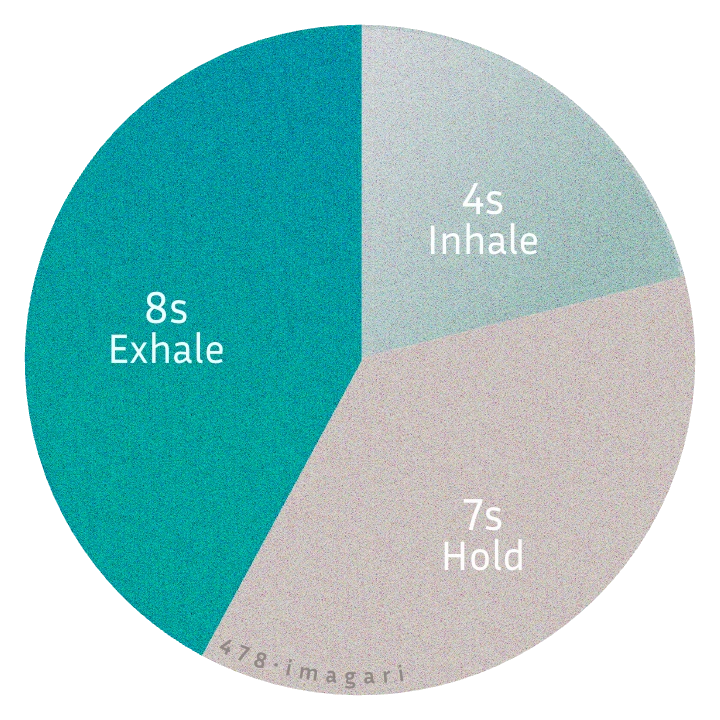4-7-8 Breathing

Overview
Section titled “Overview”4-7-8 Breathing is a calming breath technique popularized by modern science and rooted in pranayama (yogic breathing). It’s designed to relax the body quickly by extending the exhale and holding the breath in a specific ratio.
This technique is especially useful for winding down at night, calming the mind during anxiety spikes, or easing emotional overwhelm. The long exhale helps activate the parasympathetic nervous system, while the breath holds support stillness and focus.
| Phase-by-phase | Time |
|---|---|
| Inhale | 4s |
| Hold | 7s |
| Exhale | 8s |
This uneven rhythm slows breathing and emphasizes a long exhale, ideal for nervous system down-regulation.
Effects & Benefits
Section titled “Effects & Benefits”- Reduces anxiety and mental restlessness
- Promotes sleep and transitions into rest
- Slows heart rate and reduces blood pressure
- Helps manage stress, increases oxygen exchange and breath control
- Helps release emotional tension
The extended breath retention and exhale have a tranquilizing effect that’s often noticeable within the first few rounds.
Getting Started
Section titled “Getting Started”Sit or lie down comfortably. Spine straight, jaw relaxed.
Place the tip of your tongue against the roof of your mouth, just behind your front teeth (optional, from yogic tradition).
- -Inhale 4sGently through your nose
- -Hold 7sYour breath
- -Exhale 8sSlowly and fully through your nose or mouth
- -Repeat4 times or more

imagari.me/478
Repeat the cycle 4 times for your first session. Gradually increase to 8 cycles over time. Try it before bed, or anytime you feel tension rising.
When to Use
Section titled “When to Use”- Right before sleep or naps
- During panic, emotional stress, or worry
- After difficult conversations or overstimulation
- As part of a wind-down ritual (e.g., post-yoga, post-work, or digital detox)
- When waking up in the night and struggling to fall back asleep
The breath hold (7 seconds) can feel long at first—start gently and return to normal breathing if you feel light-headed. With consistent practice, your lungs and nervous system will adapt.